Student Hobbies and Its Relevancy
In the busy world of classes, exams, and assignments, students often forget one essential part of growing up — student hobbies. Yes, we’re talking about the fun stuff that happens outside textbooks: painting sunsets, building model airplanes, coding games, gardening, dancing, playing the guitar, or even baking cookies at midnight.
While they might seem like just fun distractions, student hobbies are actually powerful tools that shape character, sharpen the mind, and make school life much more exciting. So, let’s dive into why every student needs hobbies — and how these joyful little activities can create a big difference in both academic and personal life.
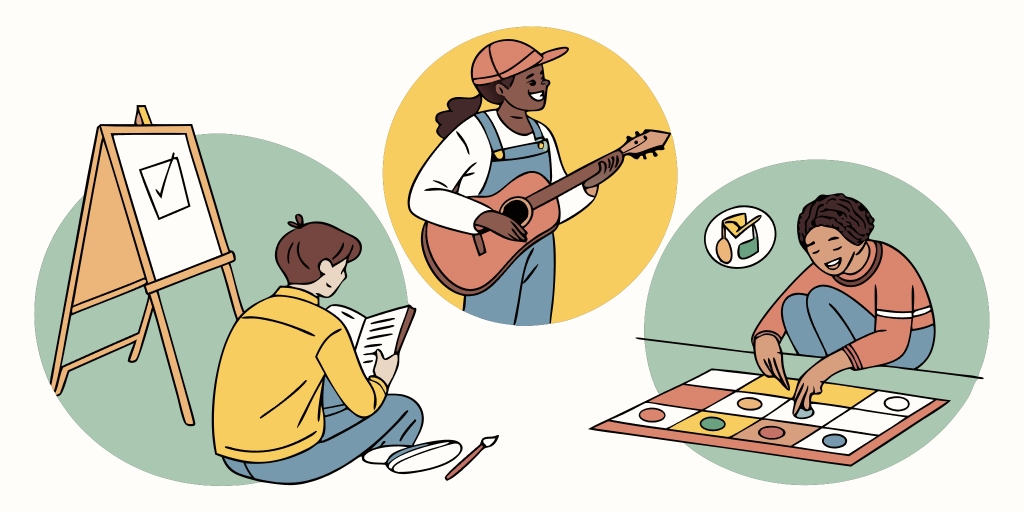
What Actually Are Student Hobbies?
Before we celebrate their importance, let’s understand what student hobbies actually are. In simple terms, hobbies are activities that students do in their free time purely because they enjoy them. These activities might not be part of the school curriculum, but they teach lessons no textbook ever could.
From sketching superheroes in your notebook to joining a robotics club, student hobbies can be as creative, physical, intellectual, or even quirky as you want them to be. The best part? There’s no “wrong” hobby — if it makes you happy and curious, it counts!
The Magic of Student Hobbies in Academic Life
Many parents and teachers worry that hobbies will distract students from studies. In reality, it’s the complete opposite. Student hobbies often enhance academic performance by nurturing essential skills.
1. Boosting Focus and Creativity
Think of your brain like a smartphone. If it’s always running heavy apps (like math equations and history facts), it overheats and slows down. Hobbies act like a reset button. They refresh your mind, making it easier to concentrate when it’s time to study.
For example, drawing or painting can boost creativity, which improves problem-solving skills in science and math. Playing a musical instrument sharpens memory and pattern recognition. Even video games (in moderation!) can improve reflexes and strategic thinking.
2. Building Time-Management Superpowers
Students who balance studies and student hobbies learn how to manage time like pros. Knowing you have football practice at 5 PM pushes you to finish homework earlier. That’s not just a scheduling skill — it’s a life skill that pays off far beyond school years.
3. Improving Academic Motivation
School can sometimes feel repetitive. Hobbies break that monotony. When students have something fun to look forward to after class — whether it’s coding a new app or rehearsing a dance routine — they’re more motivated to finish their tasks efficiently.
The Social Side: How Student Hobbies Build Friendships
School life isn’t just about grades — it’s about growing as a person. And student hobbies are incredible for social growth.
1. Making Friends Who Get You
Hobbies are magnets for like-minded people. Whether you’re into chess, theater, or basketball, you’ll likely meet others who share your passion. These connections often blossom into lasting friendships — and let’s be honest, bonding over shared interests beats small talk about homework any day.
2. Learning Teamwork and Leadership
Group hobbies like debate clubs, sports teams, or music bands teach collaboration and leadership in a fun, natural way. They help students learn how to listen, cooperate, and even guide others — all crucial skills for future careers and relationships.
3. Boosting Communication Skills
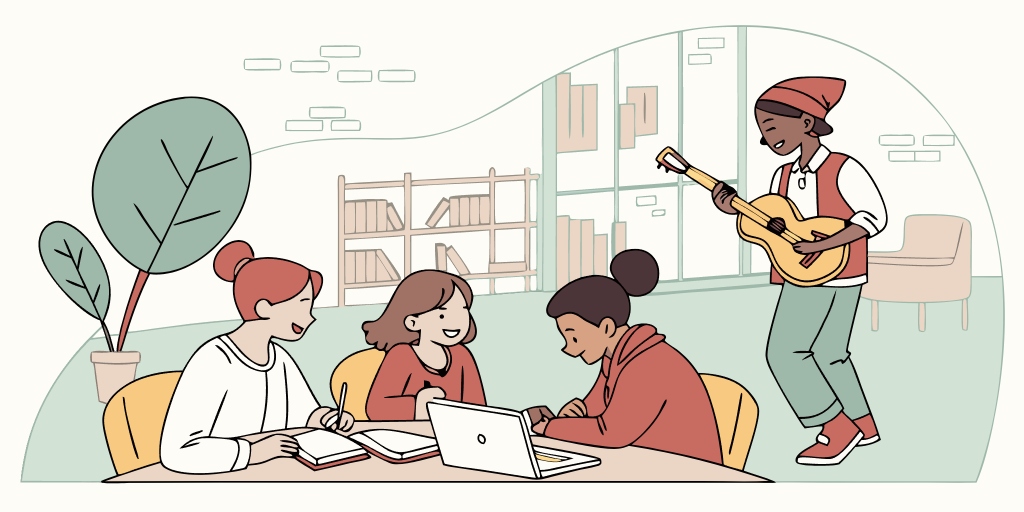
Student hobbies that involve group participation naturally improve communication. Presenting ideas in a robotics club or performing in a drama group builds confidence and articulation — skills that are just as useful in the classroom as they are in the real world.
Personal Growth: The Hidden Superpowers of Student Hobbies
Student hobbies are like hidden classrooms — they teach lessons that no chalkboard ever will.
1. Building Confidence and Self-Esteem
Mastering a new skill, whether it’s cooking your first perfect omelet or solving a Rubik’s cube in record time, gives a massive confidence boost. That confidence spills over into other areas of life, including academics.
2. Teaching Patience and Perseverance
Every hobby involves trial and error. Whether you’re learning guitar chords or trying to grow a stubborn plant, hobbies teach patience and resilience — vital traits that help students handle academic challenges without giving up.
3. Discovering Passions and Careers
Many successful careers start as student hobbies. A teenager tinkering with code might grow up to become a software engineer. A kid obsessed with photography could end up as a professional photojournalist. Hobbies can guide students toward careers they genuinely love.
Examples of Awesome Student Hobbies
There’s a hobby out there for every personality. Here are a few to inspire students to explore beyond textbooks:
🎨 Creative Hobbies
Drawing, painting, and crafting
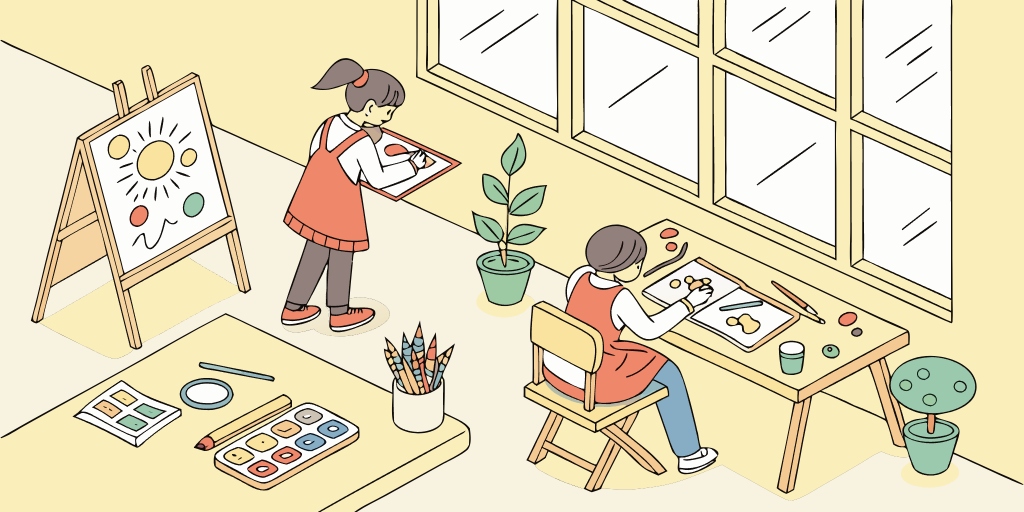
Photography and filmmaking
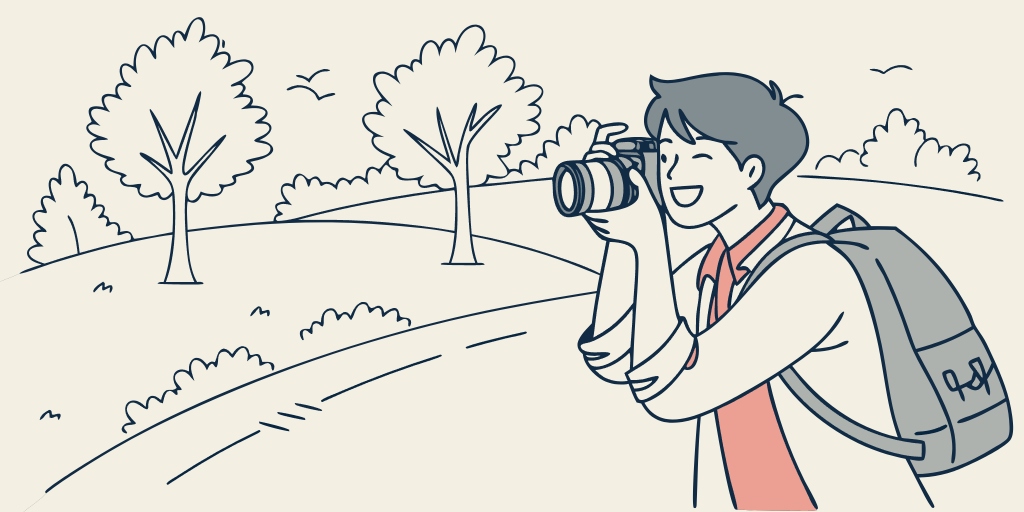
These boost imagination and self-expression while helping students see beauty in everyday life.
⚽ Physical Hobbies
Team sports like football, basketball, or volleyball
Solo activities like swimming, cycling, or martial arts
These build discipline, teamwork, and a healthy lifestyle.
🧠 Intellectual Hobbies
Chess, puzzle-solving, or coding
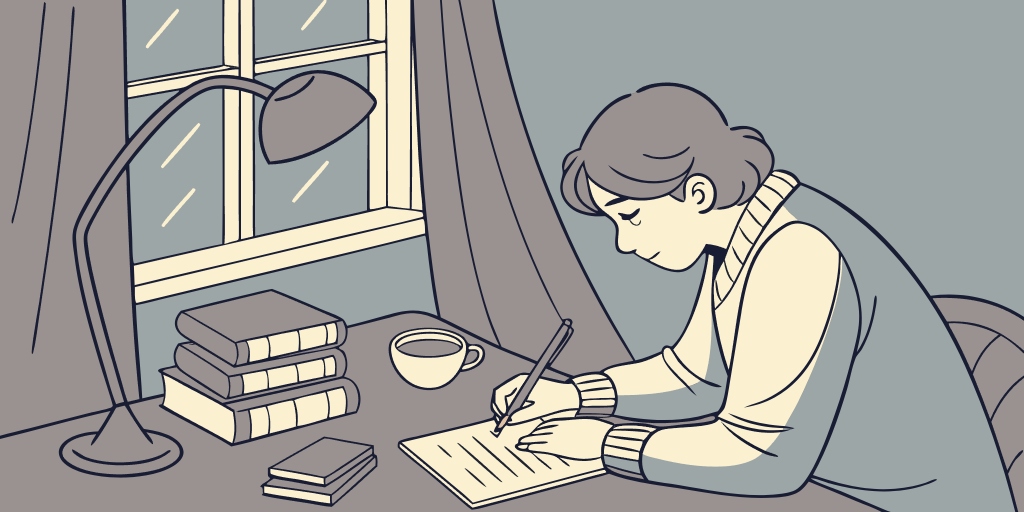
Reading, journaling, or language learning
They sharpen the mind, improve focus, and expand knowledge.
🌱 Unique and Quirky Hobbies
Gardening, baking, or DIY projects
Volunteering or starting a small student-led project
These build responsibility, creativity, and a sense of purpose.
Balancing Hobbies and Studies: The Golden Rule
The only real mistake students make with hobbies is neglecting balance. The trick is to treat student hobbies as complements, not competitors, to your studies. Setting aside even 30 minutes a day for a hobby can make a big difference without harming academic performance.
Here’s a simple method:
Plan ahead: Schedule study sessions and hobby time.
Prioritize: Finish assignments before diving into hobbies.
Mix and match: Choose hobbies that support your academic skills, like reading to improve writing or coding to boost logic.
Parents and Teachers: How to Support Student Hobbies
Adults play a huge role in nurturing student hobbies. Instead of dismissing them as distractions, parents and teachers can encourage exploration. Offering resources, showing interest, and praising effort (not just results) helps students pursue hobbies with confidence and passion.
Remember, the goal isn’t to turn every hobby into a career — it’s to let students explore themselves and grow in ways books alone can’t offer.
Final Thoughts: Student Hobbies Are More Than Just Fun
At first glance, student hobbies might look like mere pastimes — fun breaks between math homework and science labs. But dig deeper, and you’ll see they’re powerful tools for shaping well-rounded, confident, and resilient individuals.
They boost creativity, improve focus, teach real-world skills, and create joyful memories. They open doors to new friendships, future careers, and lifelong passions. Most importantly, they remind students that learning doesn’t always happen inside a classroom — sometimes, it happens on a football field, behind a camera, or in the pages of a journal.
So, if you’re a student, go ahead — pick up that paintbrush, lace up those running shoes, or start that YouTube channel. And if you’re a parent or teacher, encourage it wholeheartedly. Because in the end, student hobbies aren’t just optional — they’re essential.
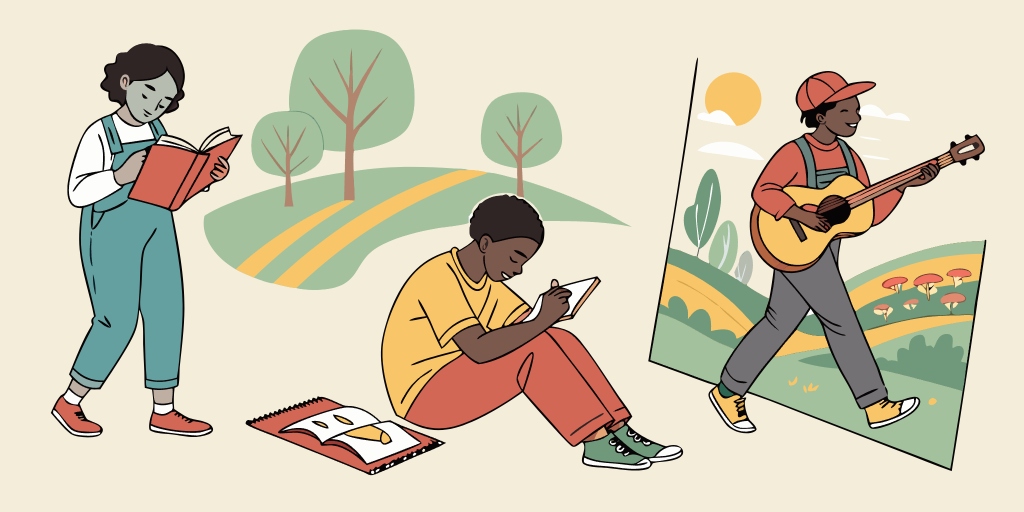
FAQ: Everything You Need to Know About Student Hobbies
1. What are student hobbies?
Student hobbies are activities that students enjoy doing in their free time outside of their academic work. These can range from creative activities like painting or writing to physical activities like sports, or intellectual pursuits like coding, chess, or language learning. Hobbies help students explore interests, develop new skills, and grow beyond textbooks.
2. Why are student hobbies important?
Student hobbies are essential because they boost creativity, improve focus, teach time management, and reduce stress. They also help students build confidence, improve communication, and develop social and leadership skills. Most importantly, hobbies make learning fun and balanced, contributing to overall personal growth.
3. How do student hobbies improve academic performance?
Hobbies act as a mental recharge. When students take breaks to engage in enjoyable activities, their focus, memory, and problem-solving skills improve. For example, playing an instrument enhances memory, while physical hobbies increase energy levels — both of which can lead to better academic performance.
4. Can hobbies help students choose their future careers?
Absolutely! Many students discover their passions and career paths through hobbies. A student who enjoys coding as a hobby might pursue a career in software development, while someone passionate about photography might become a photojournalist. Hobbies can reveal strengths and interests that guide future career decisions.
5. How can students balance hobbies with studies?
Balancing student hobbies with schoolwork is all about time management. Students should create schedules that dedicate time for both studies and leisure activities. Prioritizing tasks, avoiding procrastination, and setting small daily hobby goals (like 30 minutes a day) ensures a healthy balance without affecting academic success.
6. What are some popular hobbies for students?
Some of the most popular student hobbies include:
-
🎨 Creative: Drawing, painting, photography, blogging
-
⚽ Physical: Sports, cycling, dancing, martial arts
-
🧠 Intellectual: Chess, coding, reading, puzzle-solving
-
🌱 Unique: Gardening, volunteering, DIY projects
Each type offers different benefits, from boosting creativity to building discipline and teamwork.
7. Can student hobbies help with mental health?
Yes, they can. Hobbies reduce stress, improve mood, and promote mindfulness by giving students a positive outlet for their emotions. Engaging in enjoyable activities releases endorphins — the body’s “feel-good” hormones — which can improve overall mental well-being.
8. Should parents encourage student hobbies?
Definitely! Parental encouragement plays a huge role in developing hobbies. By supporting exploration, providing resources, and showing interest, parents help children pursue their passions confidently. Encouragement also teaches students that learning extends beyond schoolwork.
9. Are hobbies a waste of time for students?
Not at all! Hobbies are far from a waste of time — they’re investments in personal growth. While they may seem like breaks from studying, they actually enhance learning abilities, build character, and teach life skills that go beyond academic knowledge.
10. How many hobbies should a student have?
There’s no fixed number — it depends on individual interests and time availability. However, having at least one or two regular student hobbies ensures a healthy balance between academics and personal development without overwhelming a student’s schedule.
Learn about positive childhood upbringing

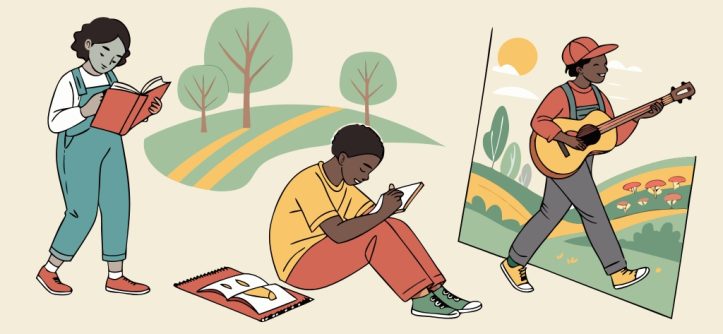

2 Comments